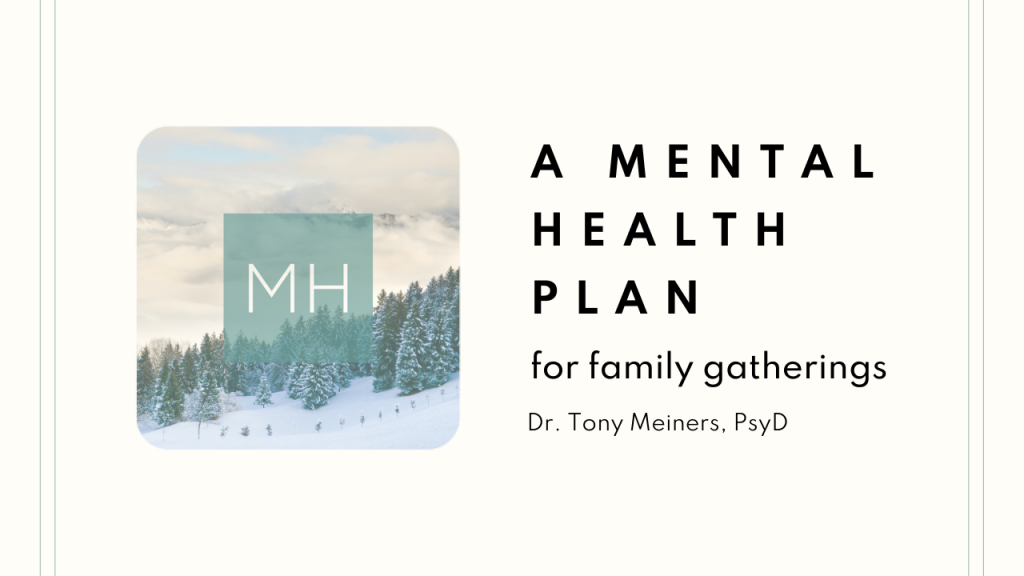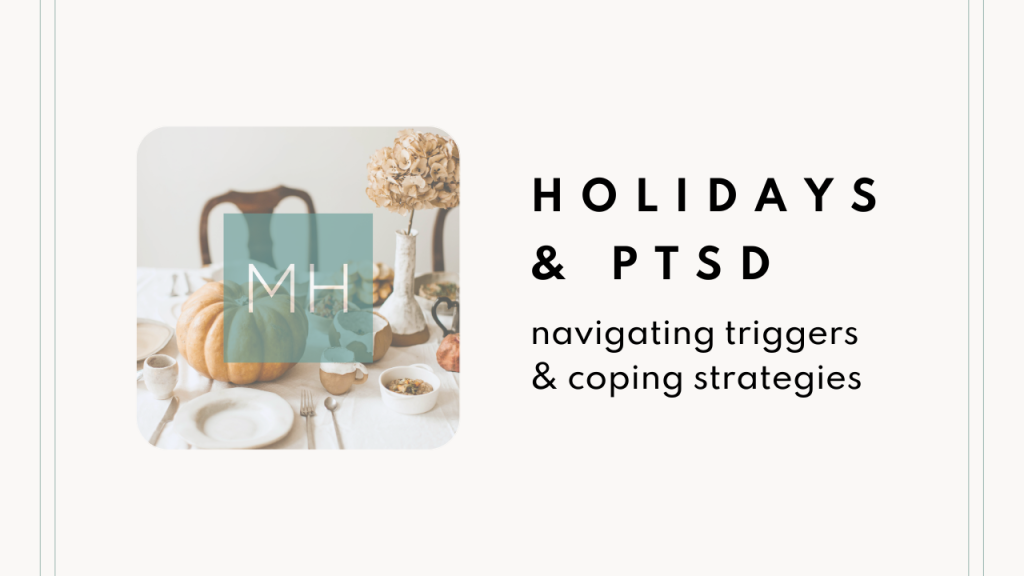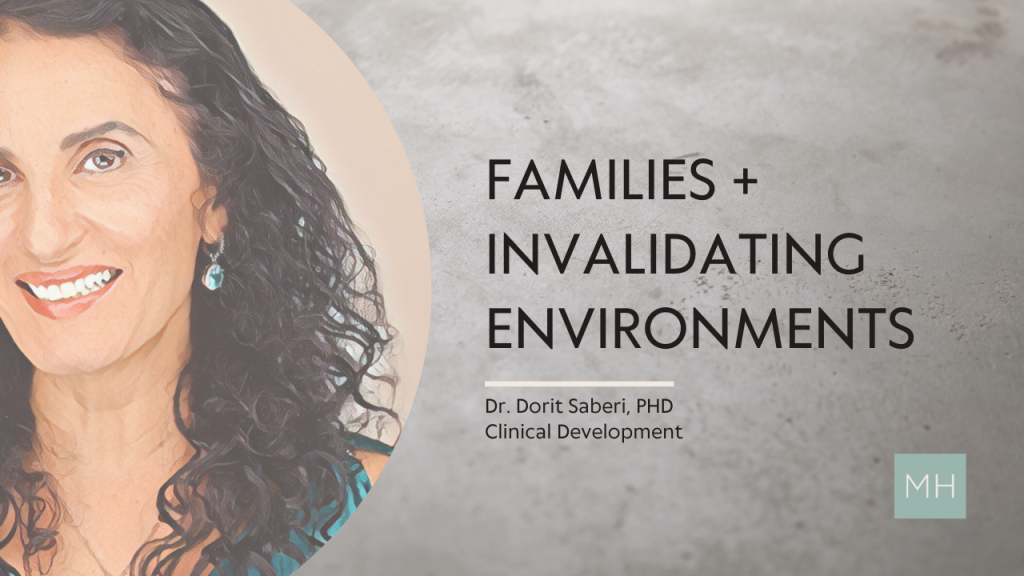For some, family gatherings are anticipated with excitement. For others, they can bring about stress and emotional challenges. Whether it’s the pressure to meet expectations, unresolved conflicts, or simply the dynamics of diverse personalities coming together, these gatherings can sometimes take a toll on your mental well-being. As we approach the holiday season, it is crucial to take actionable steps to prioritize your mental health. In this blog post, we will explore ways to prepare a mental health plan before a family gathering and provide practical tips to help you navigate these occasions with resilience and grace.
REFLECT ON PAST EXPERIENCES: Take some time to journal and think of past family gatherings. What have your previous experiences been? What was your mood before, during, and after? Identify situations or dynamics that triggered stress or discomfort. Gaining insight into triggers and stressors allows you to proactively address them in your mental health plan. Do you find that the hardest part is the anxiety leading up to it or the actual event itself? Or do you find that the aftereffects are the hardest part? In order to create any plan for the future, we have to gather evidence from past situations to help prepare.
SET REALISTIC EXPECTATIONS: It is easy to fall into the trap of expecting perfection during family events. Instead, set realistic expectations for yourself and others. Accept that imperfections are a natural part of any gathering and focus on enjoying the positive moments. Do you find yourself being let down during/after gatherings? If so, you might be setting unrealistic standards for how these gatherings should go. It is normal for there to be disagreements, differences in opinions, and emotional fluctuations within family units and family gatherings. Spend some time preparing by mentally allowing for imperfections to arise. Not every moment needs to be completely perfect, peaceful, and happy. Allowing for some “wiggle room” can help decrease disappointment, frustration, and emotional regulation.
ESTABLISH BOUNDARIES + LIMITATION PREFRENCES: Take some time to think about things that you want to limit (i.e., certain conversation topics, certain individuals, time spent at gathering) and certain boundaries that you have. It can be helpful to clearly define and communicate these prior to a gathering. It is important to remember that boundaries/limitation preferences are set to protect your own mental health and not to change other people. Often, we have a belief that boundaries are set to change other people’s behaviors and then be disappointed if people do not respect them. Instead, think of these as ways to protect you, and take necessary steps to protect your mental health if they are not abided by. Examples of boundaries could be setting some “alone time,” driving separate to an event, or choosing to not talk about certain topics.
- IDENTIFY SUPPORT SYSTEMS: Do not underestimate the power of a support system. Research consistently shows that perceived level of emotional support is a strong protective factor in decreasing mental health symptoms. Think of a few people who are able to help you regulate and are capable of holding space for you if you become triggered. Having people that understand your emotional needs and that you can lean on during stressful times is a huge part in preparing for a mental health plan.
FOCUS ON POSITIVE INTERACTIONS: Concentrate on the moments that bring you overall joy and peace during these gatherings and plan to engage in them. Are there certain people that help lift your mood that will be present? Are there certain activities or topics that make you feel better during these gatherings? Create intentional joy so that you can balance out any potential stressors/triggers and seek them out.
BRING A DISTRACTION: If you become stressed or triggered, plan to have something to distract your mind and allow you to take a few moments to regulate yourself. Pack a book, headphones, or any other small distraction to redirect your focus. Having an activity you enjoy can be a useful tool for managing stress during challenging moments.
PLAN AN EXIT STRATEGY: Have a plan for leaving the gathering early if it becomes too overwhelming or triggering. Knowing you have an exit strategy can provide a sense of control and reduce anxiety. This can be driving separately to an event or planning to have a little extra money for an Uber/Taxi if you drove together. It is okay to take time away and protect your mental state if it is not conducive to your overall mental health.
PRACTICE SELF-COMPASSION: It is important to be kind to yourself and understand that it is okay to feel stressed, anxious, or dysregulated. You are allowed to give yourself permission to step away and regroup. Treat yourself with the same compassion that you would to another loved one. Discomfort and stress are a common experience amongst family gatherings, especially during the holiday season. You are not alone or “bad” for experiencing these things. Remind yourself this.
POST-GATHERING REFLECTIONS: After the event, take time to reflect on your experience. Acknowledge both the positive and the challenging moments, and consider what strategies were effective in maintaining your mental well-being. In addition, think about things that you might have done differently so that you can prepare for the next gathering. Processing and debriefing with a trusted person after a gathering can help you gain insight and awareness into what works and what does not work when it comes to preparing a mental health plan.
By proactively preparing a mental health plan before a family gathering, you empower yourself to navigate potential challenges with resilience and grace. Remember, taking care of your mental well-being is an ongoing process, and incorporating these strategies into your routine can contribute to a healthier and more enjoyable family experience. Dr. Tony Meiners, staff psychologist at The Mental Health Collective, talks about the common experience of stress among family gatherings:
“So many people experience shame, frustration, or sadness when family gatherings do not go as expected. People may create stories that they are the ‘problem’ or that this is something that only they struggle with. This is why it is so important to give yourself grace and compassion and normalize that family gatherings can be difficult for a lot of people. People also create stories that these events are to go perfectly and without any hiccups. This is just not realistic. Family gatherings commonly present challenges as people tend to fall prey to regression defenses. In other words, people tend to revert back to previous forms of communication, engagement, and defense mechanisms from when they were younger, and they can become frustrated if they do not understand that this is a common experience within family dynamics. It can be a difficult experience for someone to feel excited for a gathering, and then wonder why they are not able to enjoy them as much as they have hoped to. Instead of judgment, practice curiosity. Do you find yourself acting/thinking/behaving in ways that are different than you normally do? What are the things that make you most anxious about the stories behind family gatherings? What would you need in order to decrease this anxiety/frustration even just a little? Introducing curiosity in place of judgment can help an individual increase their insight and awareness into what they need in order to get the most out of family gatherings.”
DO YOU HAVE A QUESTION?
Send our team a message or call 888.717.9355


